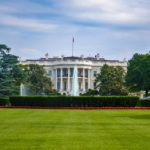In this strange season of the academic year, as classes begin with students and teachers scattered about and many gathering only “virtually” through their computer screens, my mind is cast back to a fall semester 44 years ago, when I arrived as a freshman at Virginia Wesleyan College (now University). It seems an age of the earth ago, a time when we had no internet or computers, no phones and (most of us) no television and no car. Hundreds of miles from home, what I had were classmates, teachers, and books.
But what teachers, and what books! I was drawn immediately to the tutelage of a young political scientist, Del Carlson, who had in turn studied with teachers I later learned to identify as “Straussians,” students of the political philosopher Leo Strauss—namely Martin Diamond and Harry Jaffa, both then at Claremont. Under Professor Carlson (who died far too young nearly twenty years ago), we tackled Plato, Rousseau, Nietzsche, and other political philosophers. And in our courses on American politics, the emphasis was on the American founders, on statesmen in various periods of our history, and on profound observers of American life like Tocqueville. In short, American political thought was our subject.
Though primary sources were our main meat and drink, I quickly became acquainted with the work of the Straussians as commentators on both political philosophy and American political thought. Two of them who later became my teachers were Morton Frisch and Richard Stevens, who had edited a then widely used collection of essays, American Political Thought. The contributors included first-rate scholars of the subject, whose works would influence my own for years to come, and who are still worth consulting in an age when we are constantly arguing about the meaning of the American project.
There was Martin Diamond, for instance, with his seminal work on The Federalist, which became the touchstone for his understanding of the American political order as a just, decent, stable, moderate, and altogether modern undertaking. Diamond’s best essays were collected by his student William Schambra in a posthumous volume titled As Far As Republican Principles Will Admit (which is available online at the “Contemporary Thinkers” website).
Start your day with Public Discourse
Sign up and get our daily essays sent straight to your inbox.And there was Harry Jaffa on Lincoln, with an essay that encapsulated the thesis of his 1959 book Crisis of the House Divided, still one of the greatest books ever written on the statesmanship of the Great Emancipator—and as sympathetic a portrait as one could wish as well of Lincoln’s opponent, Stephen A. Douglas.
There too was Herbert Storing, perhaps the most versatile of the bunch, writing on Frederick Douglass, and in a later edition on the Constitutional Convention as well. Storing’s essays too would be posthumously collected by a student, Joseph Bessette, in Toward a More Perfect Union (also available online at “Contemporary Thinkers”). Storing also revived scholarly interest in the Constitution’s opponents, the Anti-Federalists, collecting their best writings in print, and analyzing them in What the Anti-Federalists Were For.
American Political Thought also included an acerbic essay on Justice Oliver Wendell Holmes, Jr., by Walter Berns, the most prominent student of constitutional law among the Straussians, and therefore a big influence on me as I turned my own professional work in that direction. His The First Amendment and the Future of American Democracy cast a baleful eye on the work of the Supreme Court, and his Taking the Constitution Seriously remains an instructive tour d’horizon of constitutional interpretation.
The Straussians as a group were a fascinating bunch, and in some ways still are—clubby, mutually supportive, but sometimes falling out with one another (Jaffa famously fought with nearly all his contemporaries). In addition to the Frisch and Stevens volume, they gathered together or took on other scholars in essay collections such as those co-edited by Robert Goldwin for the American Enterprise Institute’s series on the Constitution’s bicentennial, beginning with How Democratic Is the Constitution? (available online courtesy of AEI). (Goldwin also wrote the best brief account of the origins of the Bill of Rights in From Parchment to Power.)
Even Allan Bloom, one of the Straussians least associated with the study of America, ventured into the defense of our political order when he edited Confronting the Constitution, whose contributors made good on its subtitle, The Challenge to Locke, Montesquieu, Jefferson, and the Federalists From Utilitarianism, Historicism, Marxism, Freudianism, Pragmatism, Existentialism . . .
What made the Straussians so captivating for a young student? They wrote with the authority of close readers of the texts they studied—whether the text was a work of philosophy, or a statesman’s speech, or a fundamental law. And they wrote well, without jargon, or the clutter of “methodology” one finds in the modern social sciences. They were unafraid, in an egalitarian age, to affirm the importance of great statesmen as the decisive legislators of our political life. And they showed the folly of the enervating relativism that has so long reigned in the academy, instead modeling the exhilarating intellectual adventure of truth-seeking.
Over time, my own thinking on the American founding and the principles of our political order has drifted somewhat away from these early influences, as I came to see that the Straussians had a tendency to over-emphasize the “ancients vs. moderns” thesis in political philosophy, and to make something of a flatbread of the American founding by slighting the leavening element of religion in our story. Nevertheless, I learned much from them, and still profit from their instruction and example, as scholars and teachers to whom I owe a great deal. For anyone starting his college education in politics today, I could wish no better fortune than to discover such teachers as these.














